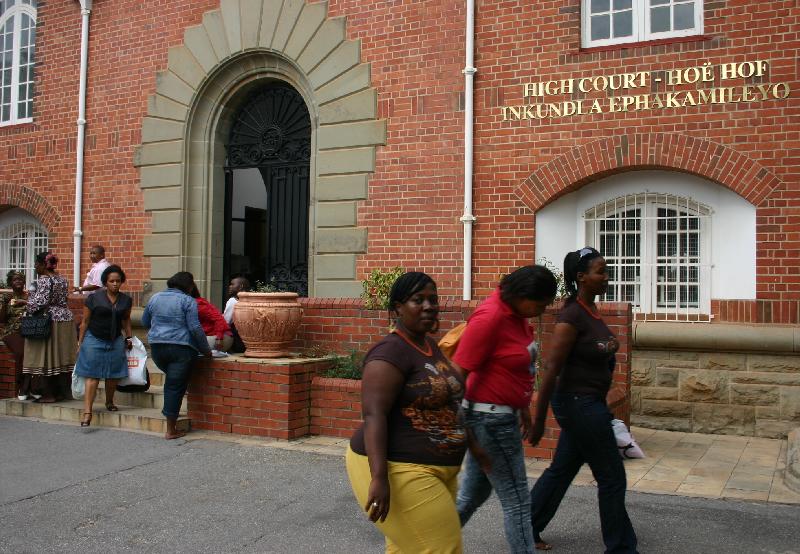
Rhodes University has joined the Grahamstown High Court Action Committee in the fight against moving the seat of the High Court from Grahamstown to Bhisho.
The presence of the High Court in Grahamstown has immense economic and educational benefits for the town, and should the move of the High Court materialise, this will have dire consequence for economic growth, for education in general and for the teaching of law at the University in particular.
According to Dr Sizwe Mabizela, who represents Rhodes on the High Court Action Committee, the High Court provides an essential service in that students and lecturers have (immediate) access to one of the best legal library resources, while the judges contribute to the governance of the University as they serve on its council.
“Our Law faculty also benefits from the sharp legal minds that are just down the road.”
It is also important to realise that the move will not only affect the legal profession and Rhodes – it will negatively impact the schools, the Municipality, business and reduce employment opportunities as many residents of the town are employed directly by the Court and indirectly by those businesses that are of service to the Court.
In 1995 President Mandela appointed a commission under the Chairmanship of Mr Justice Hoexter, to look into the rationalisation of the High Courts in South Africa. After considering the many submissions made and hearing all interested groups, the Hoexter Commission noted that, "Grahamstown is an economically depressed city in which unemployment is rife. We find that the ripple effect of moving the Seat of the High Court from Grahamstown would prove crippling to the city.
“We find further that to close the High Court in Grahamstown completely would in socio-economic terms, be nothing short of catastrophic for a large segment of the city's community. It should be pointed out, moreover, that in either situation the brunt would be borne by the socially and economically most disadvantaged section of the community."
Late in 2003 all the Judges of the Eastern Cape Division met under the Chairmanship of the then Chief Justice, Mr Justice Chaskalson (on the instruction of the then Minister of Justice) and at that meeting it was decided that Grahamstown would remain the seat of the Eastern Cape Division, with jurisdiction over the whole Province and exclusive appeal jurisdiction.
In May 2006 the previous Honourable Minister of Justice and Constitutional Development, the Honourable Mrs Bridgitte Mabandla, unequivocally agreed to keep Grahamstown as the seat of the High Court.
Grahamstown was originally constituted the seat of the High Court for the Eastern Cape 141 years ago. The High Court building, together with all the Judges' Chambers, was refurbished in 2004 at a cost of R6 million.
In addition, there are the Director of Public Prosecutions' Offices, the Master's Office, two buildings housing Advocates' Chambers, the Legal Resources Centre and of course a number of Attorneys' offices throughout the city.
The major industrial, commercial and economic activity is centred in Port Elizabeth/Mthatha, East London/King William's town, Queenstown and Mthatha. Grahamstown will have none of these centres in its jurisdiction and the Court here would eventually effectively cease to exist (it is estimated that it would take only two to three years for this to happen).
Grahamstown is a cultural, legal and educational centre and has always been, and remains, politically neutral. It is a non-industrial city of small size which functions only as a legal, educational and commercial service centre with a population of approximately 200 000. The city's livelihood depends on the Courts, University and the schools and it has a fragile economic base.
